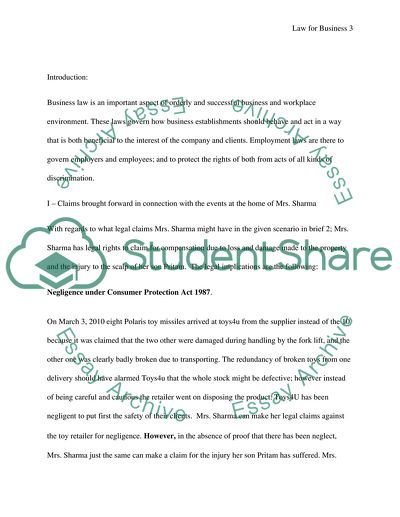Cite this document
(Negligence under the Consumer Protection Act 1987 and Breach of Contra Case Study, n.d.)
Negligence under the Consumer Protection Act 1987 and Breach of Contra Case Study. Retrieved from https://studentshare.org/law/1564075-report-toys4u-ltd
Negligence under the Consumer Protection Act 1987 and Breach of Contra Case Study. Retrieved from https://studentshare.org/law/1564075-report-toys4u-ltd
(Negligence under the Consumer Protection Act 1987 and Breach of Contra Case Study)
Negligence under the Consumer Protection Act 1987 and Breach of Contra Case Study. https://studentshare.org/law/1564075-report-toys4u-ltd.
Negligence under the Consumer Protection Act 1987 and Breach of Contra Case Study. https://studentshare.org/law/1564075-report-toys4u-ltd.
“Negligence under the Consumer Protection Act 1987 and Breach of Contra Case Study”, n.d. https://studentshare.org/law/1564075-report-toys4u-ltd.


